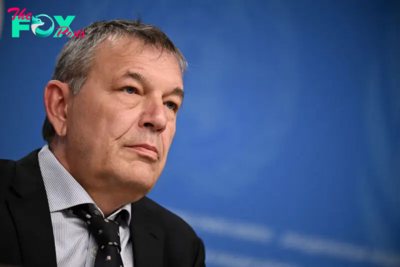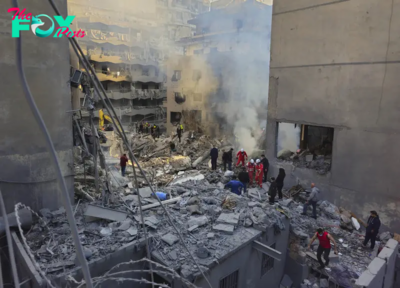World News
Over 70% of Trainee Doctors Submit Resignations in South Korea Amid Protests
Anxiety is mounting in South Korea’s largest hospitals, now starting to buckle under the gaping absence of thousands of trainee doctors who are on strike against a government plan to increase the intake of medical students.
Despite a slew of emergency measures announced by the government this week, the strike has reportedly affected the operations of major hospitals. A brain cancer patient told AFP that his chemotherapy has been postponed, even though the cancer has spread to his lungs and liver, while pregnant women say they have had their C-sections canceled. The Health ministry said it has received around 150 public complaints about the strike.
The number of participants is continuing to snowball, with 74%—or over 9,200—of trainee doctors having tendered their resignations. Over 8,000 have walked off the job, Vice Health Minister Park Min-soo said at a news briefing on Thursday.
With junior doctors leaving their posts en masse, nurses are left to hold down the fort, carrying out tasks usually reserved for doctors, such as signing consent forms and dressing wounds, local media reported.
The Korean Young Nurses Association has publicly urged doctors to refrain from joining the strike. “If more trainee doctors stage walkouts, nurses not only have to take on doctoral duties but they also have to deal with the patients’ complaints,” the group wrote in a post on social media. “If something goes wrong with the patient in the process, nurses are required by law to take all the responsibility.”
Meanwhile, Park Min-soo said on Thursday that authorities will not be accepting the resignation letters from the trainee doctors and urged them to consider the consequences of the strike. “The power of doctors does not come from collective action,” he said. “Please remember that patients are waiting for you at this very moment.”
The country’s 13,000 trainee doctors are crucial to its Healthcare system, which already has one of the lowest doctor-to-patient ratios among developed economies.
The strike comes amid protests over a government plan to add 2,000 slots to the annual quota of medical students, which now stands at around 3,000. The plan has garnered strong public support, but has also been met with protests from doctors.
Critics say that medical professionals are worried that the increased number of doctors will cause the field to lose some of its social prestige and comPetitive pay. Medicine is one of the most sought-after fields among Korean university students and their families—though many young doctors tend to gravitate towards more lucrative specialities like dermatology and cosmetic surgery.
The South Korean government has been actively trying to direct more doctors to comparatively less popular medical departments such as pediatrics, emergency medicine, and general surgery.
Read More: Why Doctors in South Korea Are on Strike
Meanwhile, some doctors argue that the expanded quota would not address the existing shortages in these departments, which are known for lower pay and long working hours. In a statement on Tuesday, the Korean Intern Resident Association said that despite calls from the association to “reasonably estimate” the number of doctors needed, “the government announced a radical medical school quota policy to win political votes.”
Across social media, criticisms have been levied against the striking doctors, who in the confrontation with authorities over the issue have been likened to a “medical cartel.”
“If a patient who needs surgery does not receive it right away, they may die,” wrote another. “Therefore, a strike by doctors is a punishable act.”
People's Livelihood Countermeasures Committee, a civic group, said on Wednesday that it has filed a police report against the striking trainee doctors as well as the leaders of a doctors' association for violating medical laws.
Standing firm on a hard-line stance, authorities said on Wednesday that they would seek arrest warrants for leaders of the strike. The government has also issued back-to-work orders to more than 6,000 trainee doctors and threatened legal action against those who defy them.
“If the illegal collective action actually results in damage to the lives and Health of patients,” authorities said on Wednesday, the trainee doctors “will be held accountable to the highest level.”
-

 World News11h ago
World News11h agoUNWRA Chief Philippe Lazzarini on the U.N. Agency’s Future in Gaza
-

 World News21h ago
World News21h agoBrazilian Police Indict Former President Bolsonaro for Alleged Attempted Coup
-

 World News1d ago
World News1d agoThe Future of Climate Action Is Trade Policy
-

 World News1d ago
World News1d agoWorld’s Best Brands – Brazil
-

 World News2d ago
World News2d agoWorld’s Best Brands – India
-

 World News2d ago
World News2d agoInternational Criminal Court Issues Arrest Warrants for Netanyahu and Hamas Commander
-

 World News3d ago
World News3d agoLandmark Bill to Ban Children From Social Media Introduced in Australia’s Parliament
-

 World News3d ago
World News3d agoAmerican and Australian Tourists Die in Laos After Drinking Tainted Alcohol



















